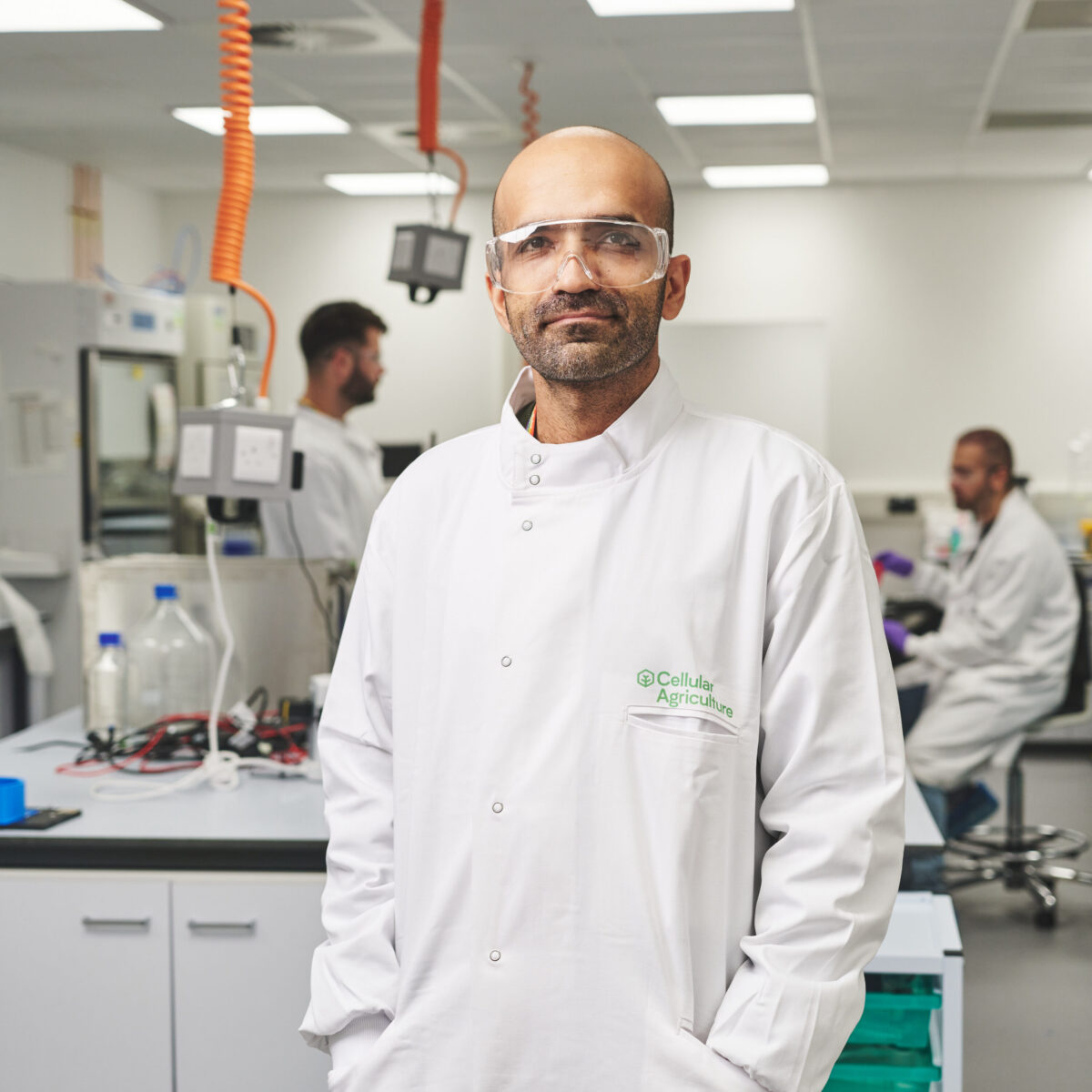Engineering the
future of cultivated
cell technology
Our bioreactors are a breakthrough technology driven by the need for sustainable, scalable solutions.

Founded in 2016, we’ve been busy developing industry-leading bioreactor systems for almost a decade. Our goal? To create sustainable, scalable cell culture solutions. And we remain at the forefront of innovation.
Our focus is food, but we’re actively exploring other applications for our technology. Watch this space. Or be a part of it.
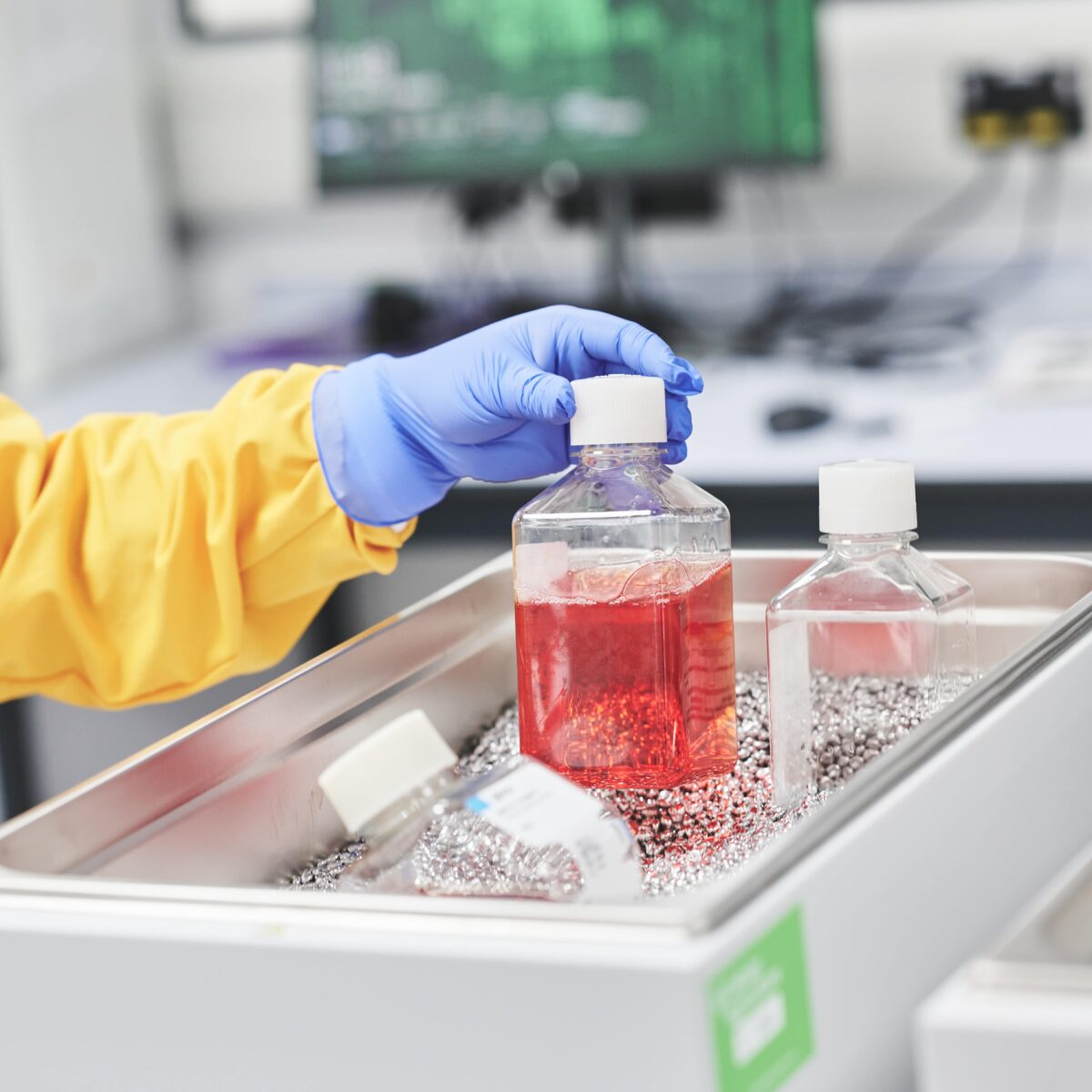
For us, innovation isn’t a buzzword; it’s a necessity.
Back in 2018, Innovative UK funded and supported our development of a proof-of-concept bioreactor for the cultivated food industry. The technology we created was displayed at Nemo Science Museum, Amsterdam through the summer of 2019 — the first-ever public demonstration of its kind.
Since then, we’ve been breaking new ground in research and development for sustainable, scalable bioprocesses across industries. We now work out of a bespoke facility at Corsham Science Park, allowing us to further our commitment to innovation and excellence.
Careers
Non-negotiables in our pursuit of progress
As our bioreactor technology evolves and moves into new industries, these principles shape how we work every day.
People, planet, profit
In that order. Sustainability starts with responsibility, so we ensure innovations serve the greater good before commercial gain.
Industry-defining
By pushing the boundaries of bioprocessing, we create scalable solutions that change people’s views on sustainability.
Sharing expertise globally
Breakthroughs should be shared, not siloed. At every opportunity, we collaborate across borders, industries and disciplines.
A focus on development and inclusion
Diverse perspectives fuel more effective bioreactor solutions. Hence our open, inclusive environment.
Responsible global citizen
For us, sustainability hinges on long-term viability. Our technology is built to be adaptable, scalable, and future-proof.
Our founders’ backgrounds in agri-food and biotechnology mean Cellular Agriculture Ltd has long been a collaboration between researchers, engineers, and the agricultural community.
As our research expands beyond the application of cultivated food, our body of contributors and collaborators will also grow. Here, you can read about the people central to our work over the past decade.
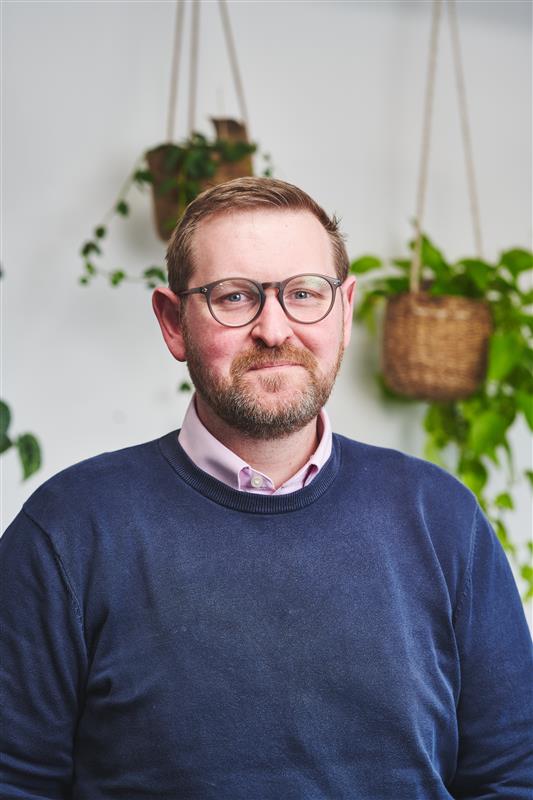
Illtud is a Farmer, Agri-Food Consultant & Serial Business Owner.
His family can trace their agricultural history for over 300 years. He established Charcutier Ltd, a speciality meat processing business in 2011 as a farm diversification project. It won the title of Best Food Producer in the UK from the BBC Food and Farming Awards in 2016. He has worked across the Agri-Food supply chain with companies ranging from start-up street food businesses to leading food halls, Michelin starred restaurants and industrial multinationals. His Nuffield Farming Scholarship led him to cultured meat via the First Symposium on Cultured Meat at Maastricht University where he met co-founder Marianne in 2015.
His prior consultancy work spans animal health, welfare and genetics along with food production and food policy. He has significant experience at board level having held a public appointment and a number of board positions.
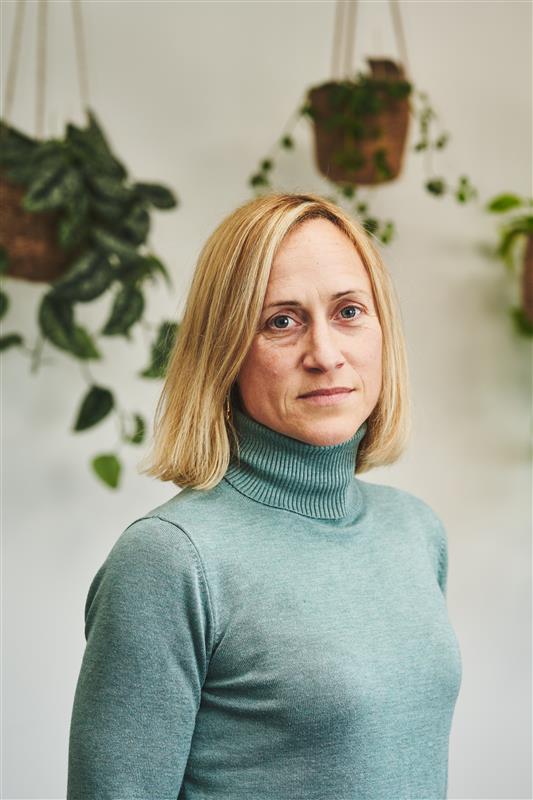
Prof. Marianne Ellis is a Chartered Chemical Engineer with experience in bioprocessing for tissue engineering.
Her aspirations lie in building sustainable systems to economically scale tissue engineering for ‘quality of life’ applications, currently focused on food production. She previously commercialised technology in tissue engineering bioprocessing from academia to Cellesce Ltd (now part of Molecular Devices), and seeks to emulate those successes with Cellular Agriculture Ltd.
She has held several leadership roles including Head of the Department of Chemical Engineering and Associate Dean for Education at the University of Bath, and a Royal Academy of Engineering/Leverhulme Trust Senior Research Fellowship. In her academic role she is currently Director of an EPSRC Sustainable Manufacturing Hub ‘CARMA’, and in her CTO role is part of the 2023/4 cohort of the RAEng Shott Accelerator
Key milestones and breakthroughs since our inception
A meeting of minds
Illtud Dunsford and Professor Marianne Ellis meet at the First Symposium on Cultured Meat at Maastricht University. So it begins.

Cellular Agriculture Ltd founded
With our HQ in Llanelli, Wales, Cellular Agriculture Ltd becomes the first company in the cultivated food industry in the UK and Europe.

Industry funding achieved
Innovate UK grants us funding to further develop this key technology; it’s the first UK Government support for a nascent industry.

Bioreactor Proof of Concept
With a growing team, Illtud and Marianne develop and test the first hollow fibre bioreactor proof of concept.
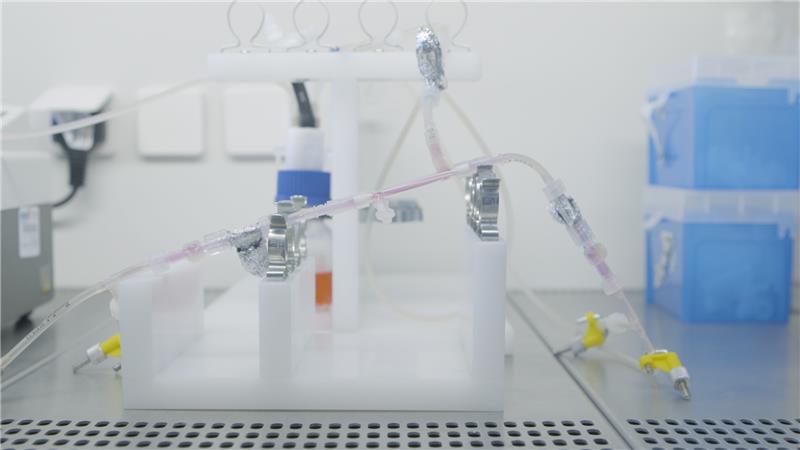
Public demonstration
We host the first-ever public demonstration of enabling technology for the cultivated food industry at Nemo Science Museum.
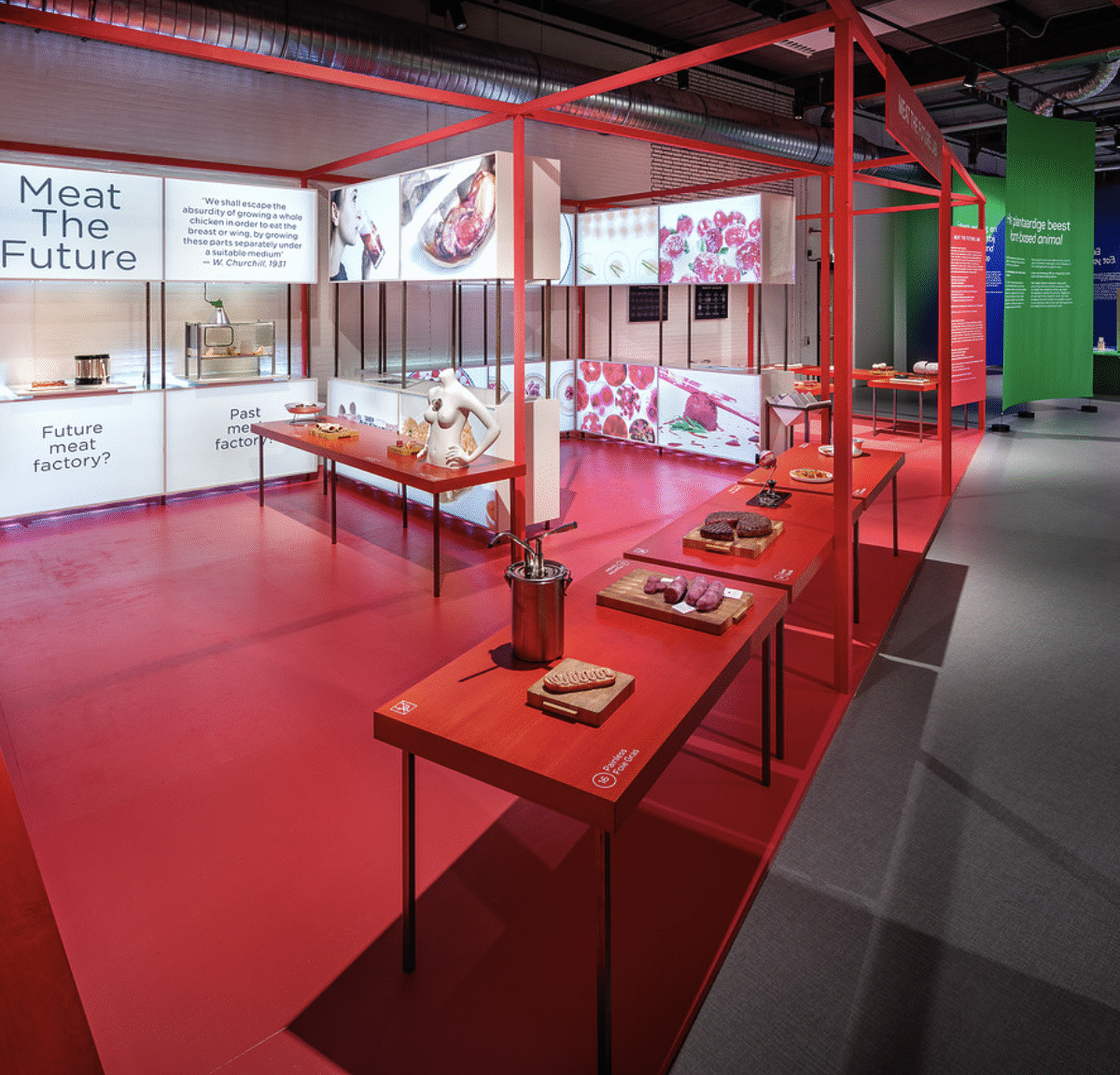
Food Industry Investment
Hilton Foods becomes an equity investor and key industry partner.

Benchtop Bioprocess System
We develop our first semi-automated benchtop R&D system.
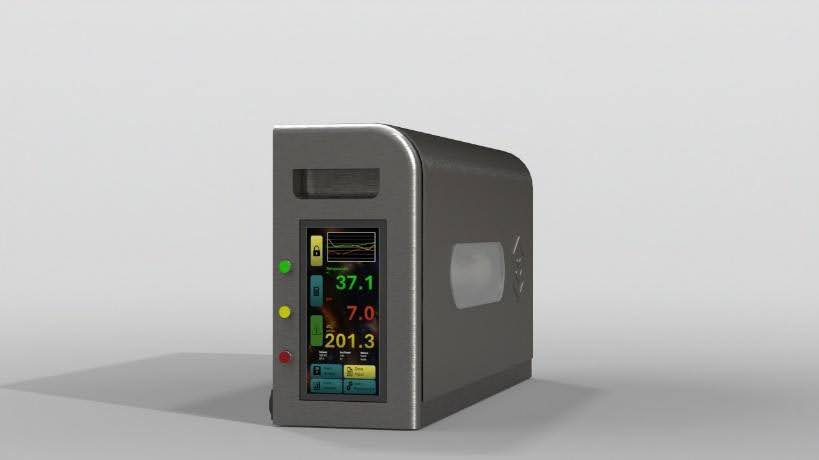
New R&D Facility & longest hollow fibre bioreactor for cell culture
Relocation to a state-of-the-art £3M R&D facility at Corsham Science Park.
We develop the world’s longest-ever hollow fibre bioreactor for cell culture.
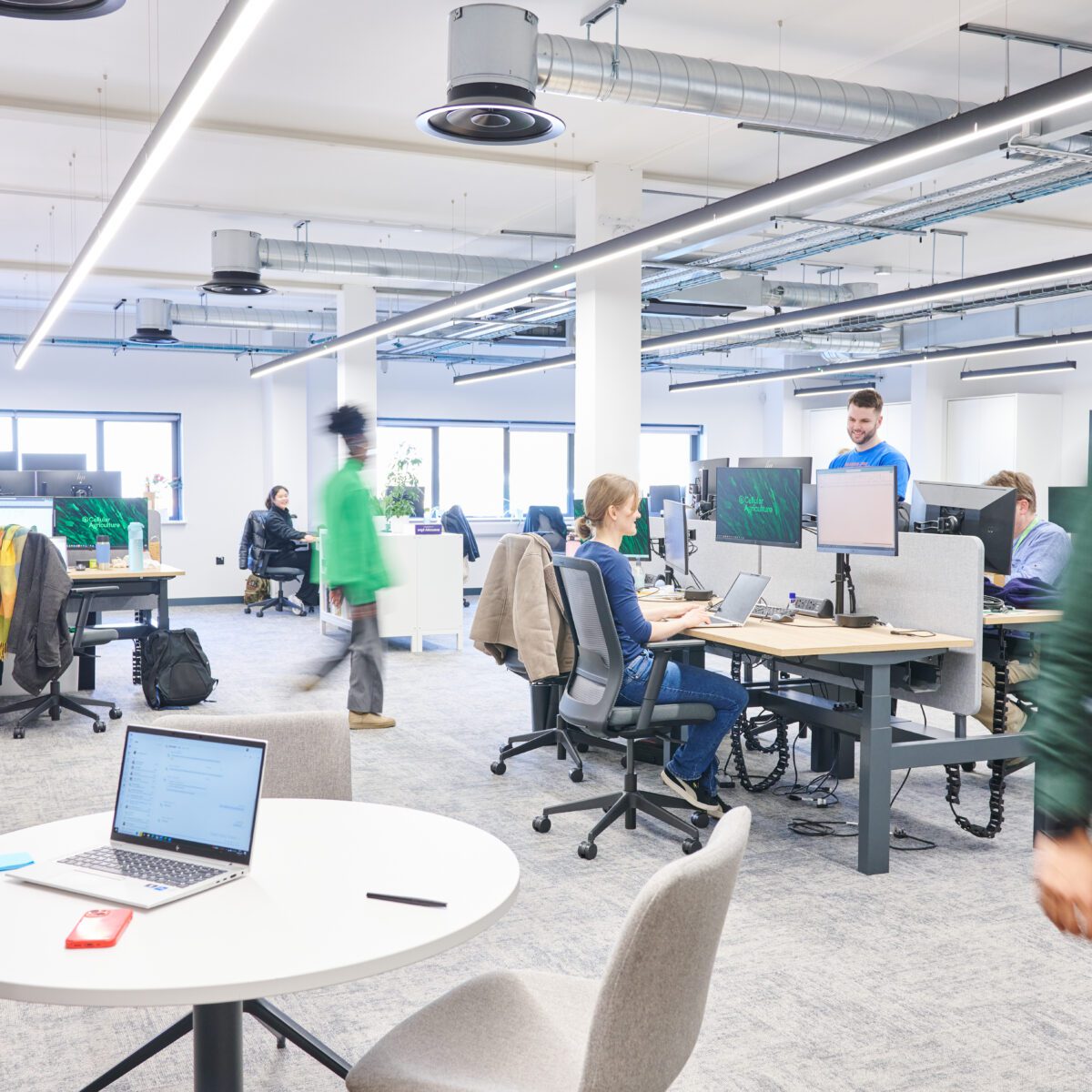
Deployment of our Benchtop Bioreactor System
Deployment of our benchtop bioreactor system with our partners at Campden BRI.
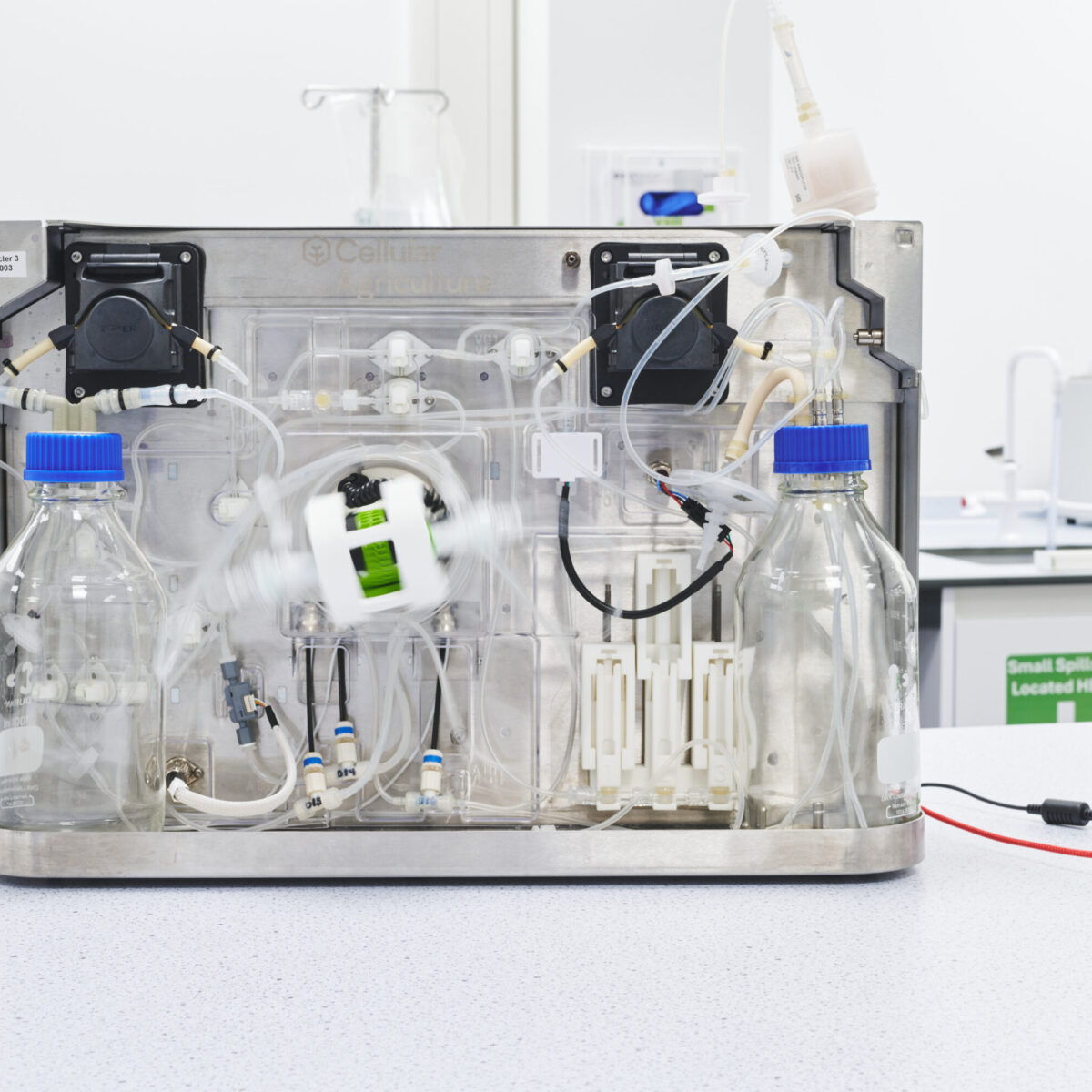
Big ideas need brilliant people
We’re building bioreactor technology that could redefine how industries operate. We need sharp minds to make that happen. Whether you’re an engineer, scientist, or problem-solver from another field — there’s space here for the innovative and driven.
